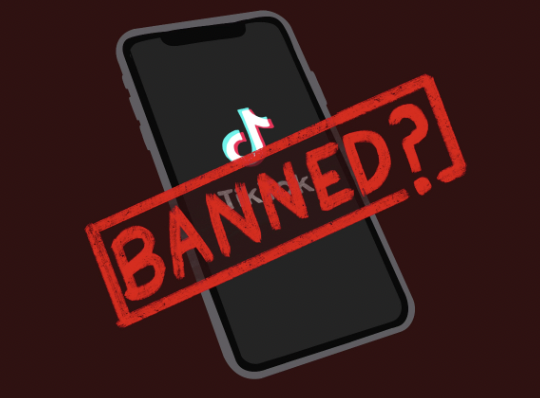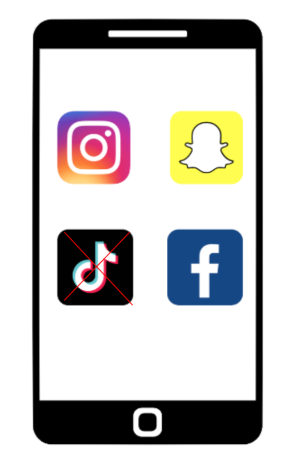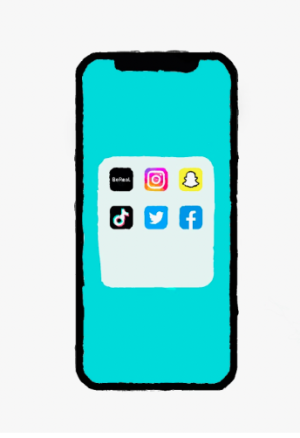Staples community divides over potential Tik Tok ban

TikTok is on the verge of a ban, as can be seen during last week’s meeting with Congress. Some members of congress are concerned about what information China is getting and how they might use it.
The CEO of Tik Tok, Shou Zi Chew, testified in front of Congress regarding the potential banning of the app on March 23. The hearing was streamed live on multiple sources as numerous representatives questioned Chew about his app and what it brings to society, including algorithms and addiction. Each spokesperson had about five minutes to address concerns, many of which were about Tik Tok taking personal information from its users and providing inappropriate content to minors. Tik Tok is owned by a Chinese company, which collects information from the 150 million U.S. Tik Tok users. The Chinese government could demand that this information be handed over, which is a major concern for the United States.
Despite these concerns, TikTok remains one of the most popular social media apps in the world, with millions of active users sharing and engaging with content every day. This controversy is one that most people have mixed feelings about. Some don’t see the issue and would be very sad to see the app go, while some are skeptical of China’s potential involvement in the app.
“It is very distracting, so I think it could be good for people to have a break from [Tik Tok], and it is kind of weird that they are getting information from us,” Freddie Fielding ’25 said.
Tik Tok creators found ways to engage their users 24/7 and keep them using the app through certain methods. When a user engages positively or negatively with any content, it shows whether or not they enjoy those things, which then determines their “For you” page. This is an element of Tik Tok that requires personal information to be collected in order to create the personalized feeds that users are viewing.
Some, however, don’t believe that Tik Tok is any more threatening than other social media apps.
“Every app does that; there is really no difference from other social media,” Marin Banks ’25 said.
Another way that Tik Tok may be manipulative is that most videos range between 15 seconds to one minute, which is the right amount of time for users to feel a dopamine rush from the content they are viewing. And because this time frame is what users have become used to, the attention span of many individuals has shortened. According to Yahoo News, this is why it is hard for adolescents these days to watch a movie or read a book.
“Social media affects kids attention span, which affects how long kids can read,” English teacher Paul Zajac said. “It’s a distraction 100%, so the more you are on social media, the more it’s a hindrance to sustained reading.”
Although it can be hard to say goodbye to an app that has been able to connect a generation of people, recently more adolescents have been able to admit the downsides of the platform and the influence it has over society.
“I think Tik Tok is good in some ways,” Aidan Lapatine ’26 said, “but it’s creepy how it knows the things you like. ”

Journalism allows your voice to be heard—at least, Cassidy Gutman ’25 believes so. As a Staff Writer, she loves writing Inklings articles and creating...



















































